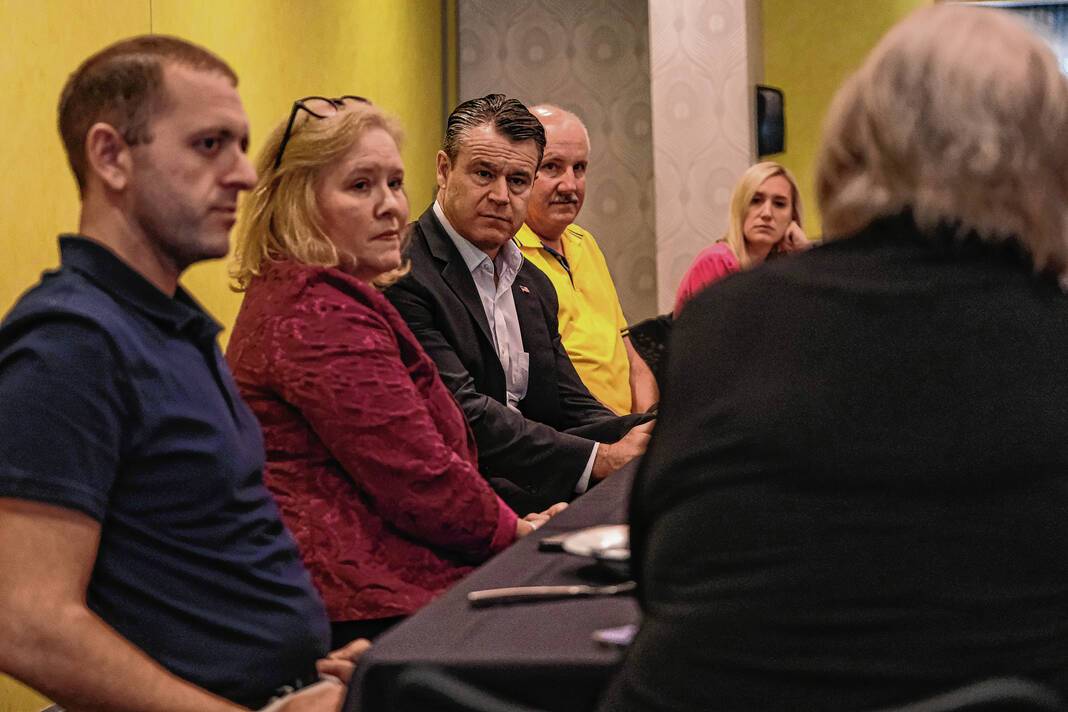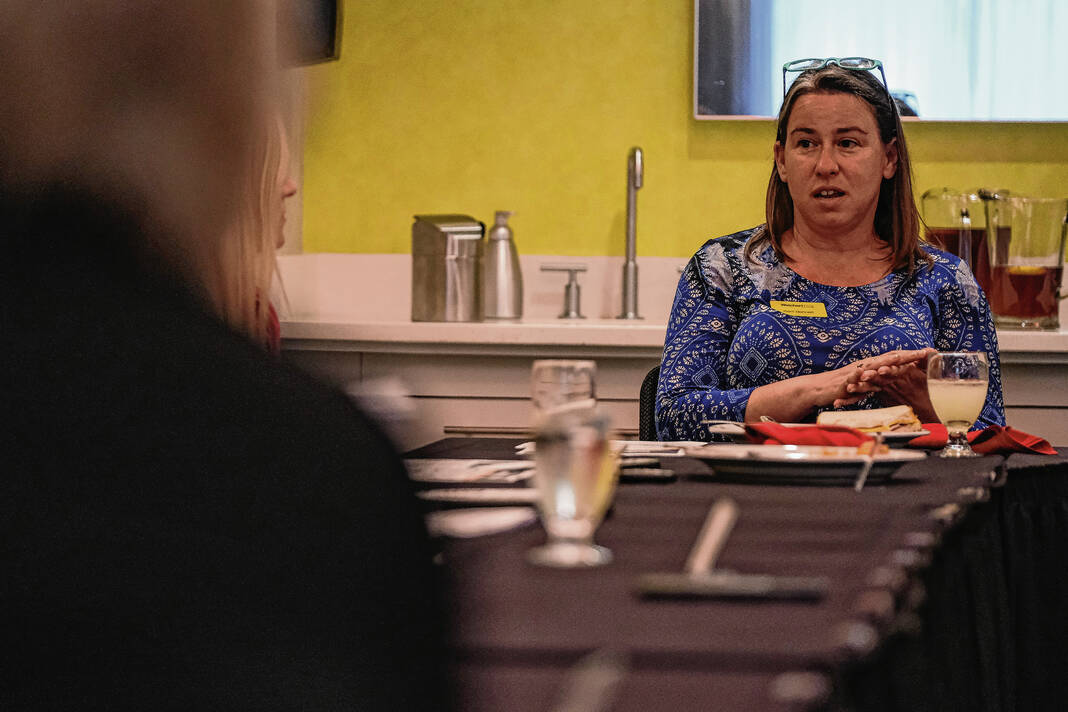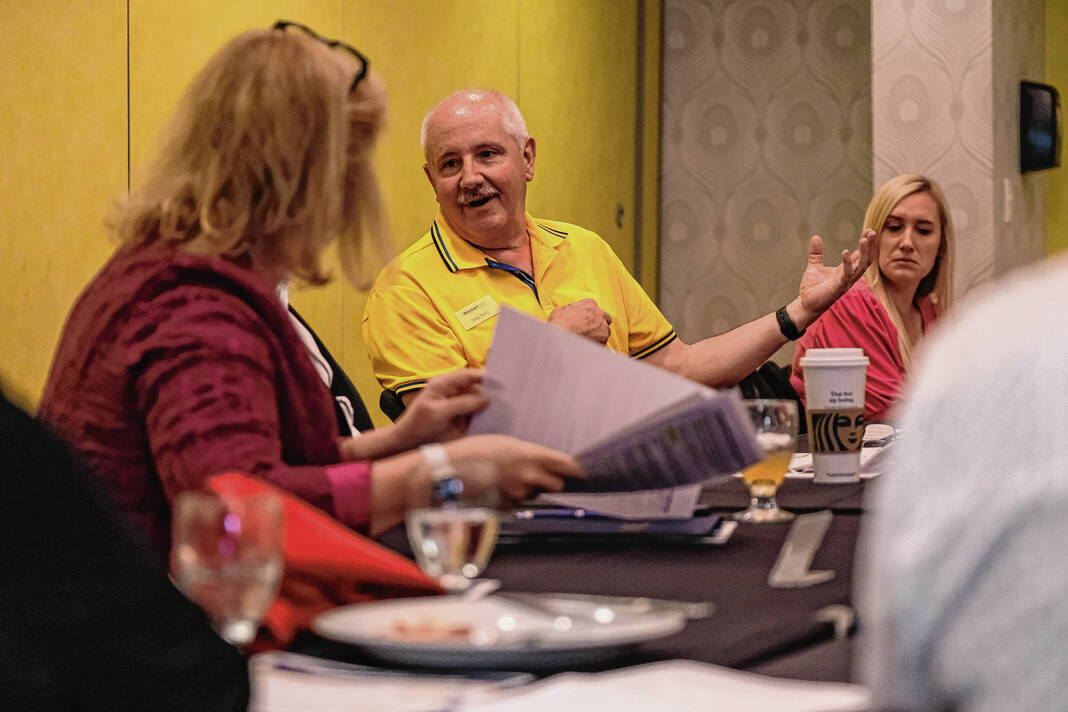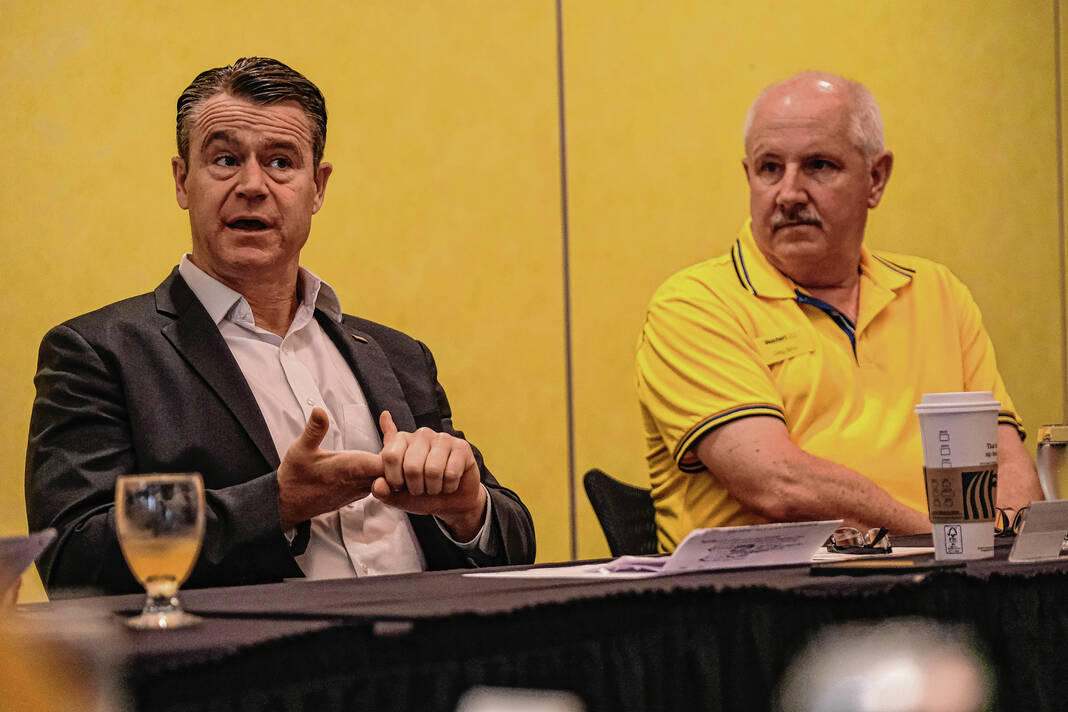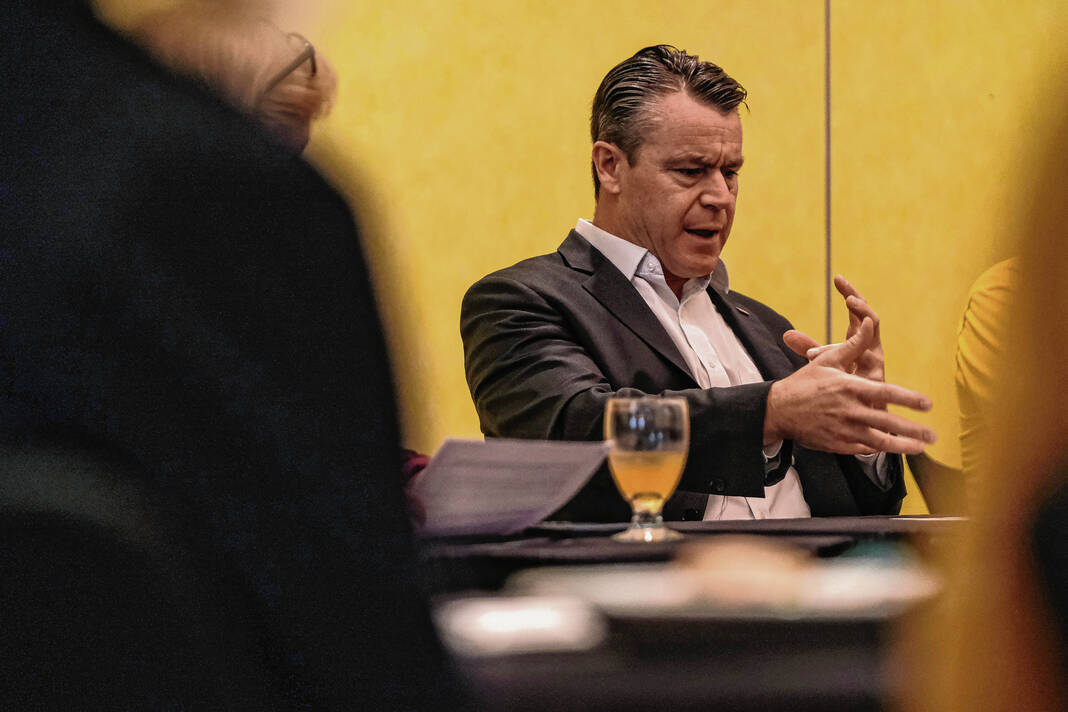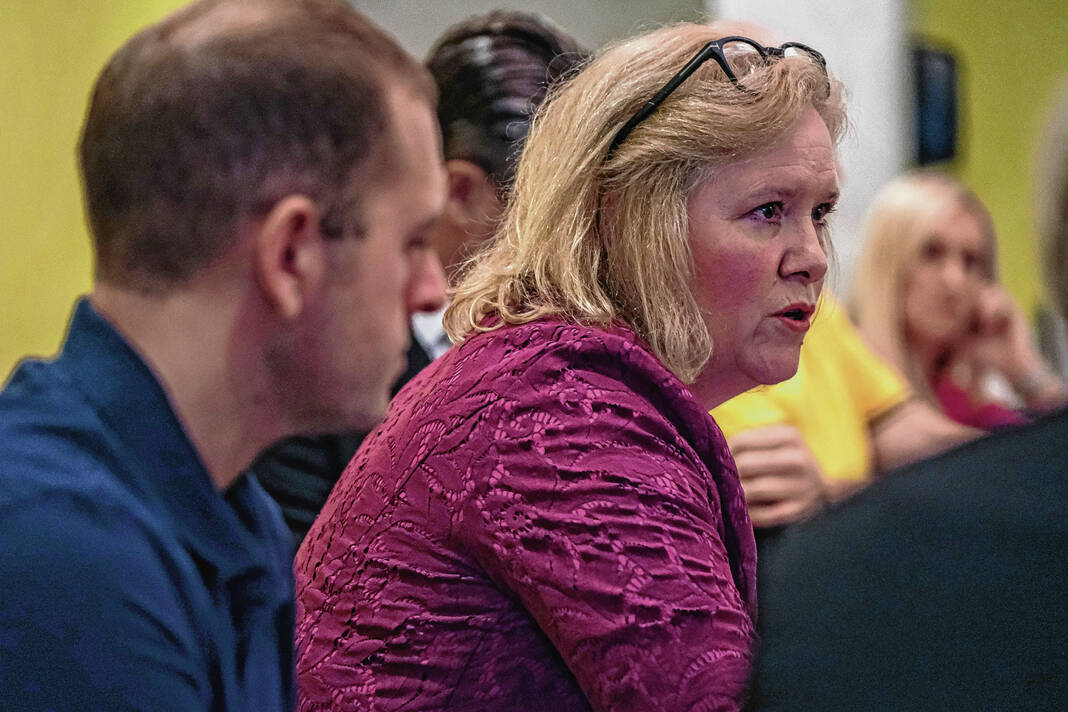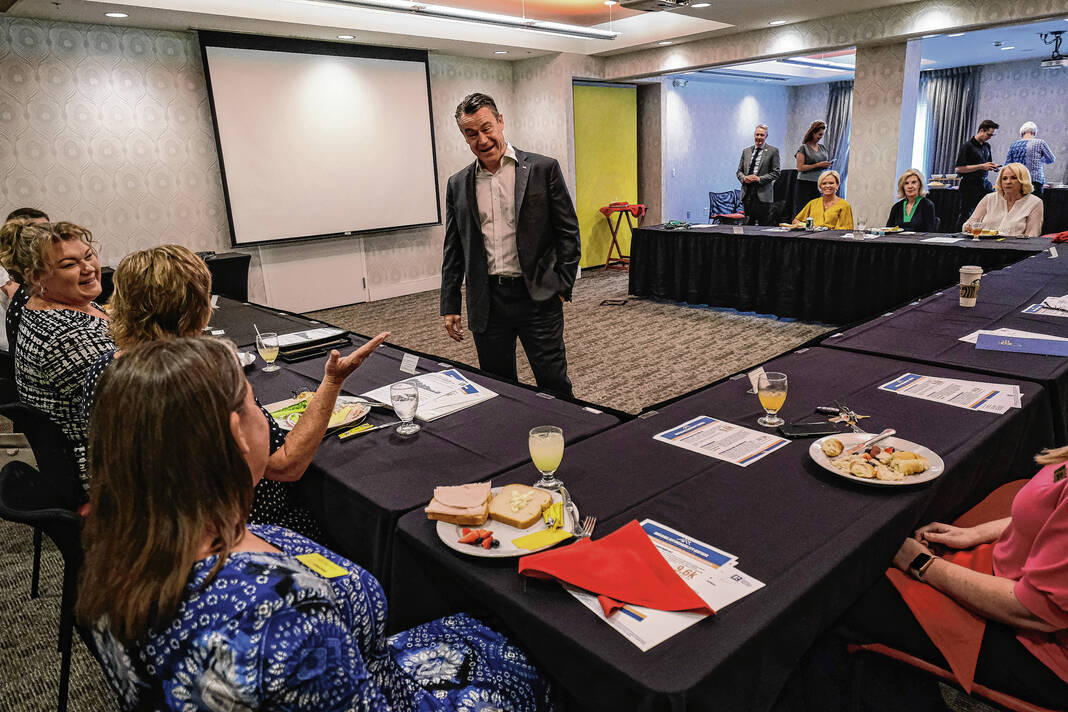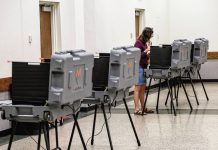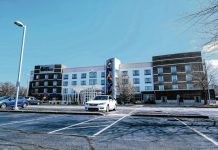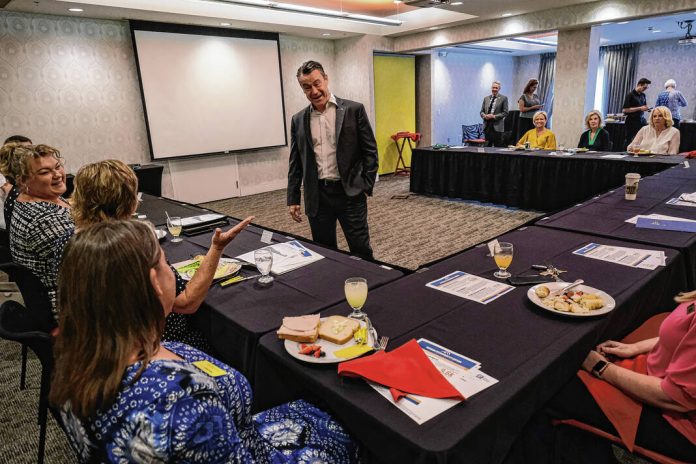
Mike Wolanin | The Republic
Sen. Todd Young, R-Indiana, visits with local Realtors before a housing roundtable by the Crossroads Association of Realtors at Hotel Indigo in Columbus, Ind., Tuesday, June 27, 2023.
Columbus-area Realtors listened to Indiana senior Sen. Todd Young’s plans to help improve tight housing opportunities Tuesday, but they also told him about some of the conditions in the local real estate market that are vexing them and homebuyers.
Young, a Republican from Bargersville, visited a roundtable discussion hosted by the Columbus-based Crossroads Association of Realtors and heard an array of concerns. Among them, inventory of homes for sale is about 75% less than it was in 2014. Home prices remain near historic highs even as interest rates have increased. Entry-level homes are in especially short supply.
Kerri Bennett with Weichert Realtors said of homeowners who bought when interest rates were in the 2% and 3% ranges, “Those people are not moving for anything. … I actually have a family that has a super offer on their home,” but they would be unable to afford to finance another home due to inflation and higher interest rates.
“We’d love for it all to come roaring back immediately. I don’t think many people are predicting that,” Young said. “… As you look at sort of growing the next generation of homebuyers, how does that occur? … I would hope that we would have more stock out there.”
Young is advocating three bills in Washington he believes could help meet that goal.
Chief among them is the Neighborhood Homes Investment Act (NHIA). This bill co-authored by Young aims to revitalize distressed neighborhoods by providing tax credits that states could use in targeted areas to build or renovate homes. Recipients would have to meet low- to moderate-income eligibility criteria.
Young’s office said the bill, if passed, could revitalize nearly 9,600 homes and create $2.4 billion in development revenue in Indiana in the next 10 years.
“We especially want to be supportive of those owner-occupied structures, where someone just doesn’t have the money to fix their house up, and they’re of modest means … we’re gonna help you out. We’re going to give you half the money for it, you’ve got a lot of skin in the game, the other half, and as long as it’s owner-occupied, the money is released, and this will also bring in a lot of private capital, people just looking to take entire blocks and improve them” in designated areas, Young said.
He said this would benefit communities by increasing tax rolls and stabilizing neighborhoods.
“There are some real opportunities for this area as it relates to the Neighborhood Homes Investment Act in particular,” Young said of the Columbus region in a brief interview after the roundtable. “We anticipate that there will be owner/occupants who will benefit handsomely from incentives that can allow them to remodel their own homes and benefit entire communities in the process.”
Additionally, Young’s “Housing Affordability Agenda” includes legislation called the Affordable Housing Credit Improvement Act that his office says would help create an additional 44,500 housing units in Indiana, generating $7 billion in wages over the next 10 years.
Also, Young supports legislation called the Yes In My Backyard Act (YIMBY) that his office said would “encourage localities to eliminate burdensome and discriminatory zoning and land use policies that drive up housing costs” and increase transparency in local land use and zoning decisions. The aim is to reduce local regulations that may inhibit home construction.
The senator said he was optimistic that some combination of these bipartisan measures will pass by the end of the year.
During a Q&A session moderated by Maggie McShane, senior vice president of government affairs for the Indiana Association of Realtors, Young said his housing agenda was informed by discussions with Realtors, and he listened to their concerns about a market where demand is far outpacing supply.
First-time homebuyers are at a particular disadvantage, particularly if they are trying to buy a home with an FHA or VA loan, which require more extensive documentation, inspections and approvals.
“It’s just not a possibility in the last couple of years,” said Dana Carson of Re/Max Real Estate Professionals. Many homes on the market receive multiple offers, she said, and “the conventional (mortgage) buyer, the cash buyer gets it. FHA, the government loans, can’t compete.”
Young also noted that rent prices locally have risen too, and Realtors said even apartments locally are hard to find and expensive. Outside investors are snapping up entry-level homes, often sight-unseen, several agents observed, and leasing them as rental properties.
This causes people who might be trying to buy a home to have to pay more in rent, so they are less able to save for a down payment.
“This is a major labor market impact, too,” Young said. “For people to be able to live near where the jobs are, is like a pretty basic economic challenge for us. … If our job at the federal level is to facilitate interstate commerce, we better focus on this.”

